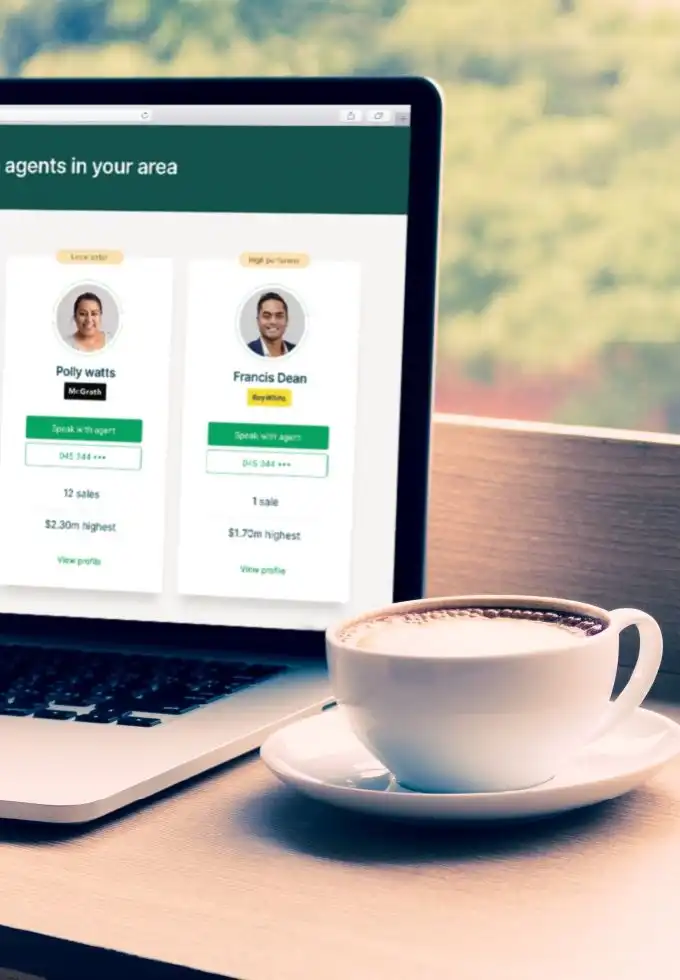Who pays for stamp duty when selling a house?
Stamp duty is often an unavoidable expense in real estate, but do you pay stamp duty when you sell or when you buy? Who do you pay stamp duty to?
Also known as transfer duty, stamp duty is a tax on the transfer of property. It’s charged by your state or territory and how much you pay depends on your circumstances.
Who pays stamp duty?
There’s a misconception that both buyers and sellers pay stamp duty when selling a house – this isn’t true. Only buyers pay stamp duty, usually as an upfront cost calculated as a percentage of the property’s value. Generally, the cheaper the property, the less tax is charged. As a buyer, it’s important to budget for stamp duty on top of other expenses such as your deposit, building inspections and moving costs.
In many cases, stamp duty is included in the price of a home. If it isn’t, you’ll need to work out the cost of stamp duty in your state and add it to the price. Stamp duty isn’t pocket change – stamp duty on a $400,000 home in NSW can cost around $13,500.
Stamp duty doesn’t apply to all buyers in the same way – some buyers may be eligible for stamp duty exemptions or concessions. When stamp duty is paid also differs by state or territory.
While sellers don’t pay stamp duty, there are other government fees when selling a house to be aware of our cost of selling calculator can help estimate how much you should budget to sell.
When to pay stamp duty
In all states, stamp duty must generally be paid within 3 months of signing the contract of sale. However, some states give less time than others or have varying time periods depending on the nature of the purchase.
Paying stamp duty on time is critical to the sale – typically, the transfer of the property isn’t complete until stamp duty is paid. Not paying stamp duty on time may also result in late payment penalties and expensive interest charges.
NSW
When to pay stamp duty in NSW can depend on whether you’re a first home buyer or not. Generally, stamp duty must be paid within 3 months of signing a contract of sale. If you’re a first home buyer, you may be eligible for the First Home Buyer Choice scheme. This scheme offers first home buyers the option of paying an annual property tax instead of paying stamp duty up front – this property tax is then paid in one annual or in quarterly instalments. The option to pay property tax applies to homes purchased for up to $1.5 million.
VIC
The method of conveyancing can determine when you pay stamp duty in Victoria. Under taxation law, and in the case of traditional paper-based settlements, land transfer duty must be paid within 30 days of settlement – the day you legally take ownership of the home. As property sales are now conducted electronically, stamp duty is usually paid at settlement. Your real estate agent can advise if this applies to you, so you can factor the amount into your budget.
QLD
In Queensland, transfer duty must generally be paid within 30 days from when the contract is signed or when it becomes unconditional. Stamp duty becomes payable after your solicitor has lodged all the necessary documents and you are sent a notice of assessment.
SA
In South Australia, you become liable for stamp duty when the sale is finalised, and it must be paid within 3 months.
WA
In Western Australia, stamp duty is paid within a month of receiving a Duties Assessment Notice, but it’s possible under certain circumstances to receive an extension or to pay in instalments.

TAS
In Tasmania, stamp duty must be paid within 3 months of the transfer of the property.
NT
In the NT, home buyers must pay stamp duty within 60 days of settlement.
ACT
In the ACT, stamp duty is also known as “conveyance duty” and must be paid within 3 months of settlement.
Who do you pay stamp duty to?
Stamp duty is paid to your state or territory government through its revenue office. As a state government tax, your stamp duty is then used to fund essential services like health, education and roads and transport.
Methods of stamp duty payment
Your solicitor or conveyancer can arrange to pay stamp duty on your behalf, but you may also opt to pay it yourself. Stamp duty can be paid by:
- BPAY
- Electronic funds transfer (EFT)
- Cheque or credit card
- Direct debit for eligible customers (in some states)
Who is eligible for stamp duty exemption?
In Australia, there are numerous stamp duty exemptions or concessions available to eligible buyers. Not every state offers the same exemptions but there are typical circumstances where concessions may apply.
First home buyer schemes
Most states have first home buyer schemes offering stamp duty exemptions or concessions to buyers who’ve never owned property before. In most cases, property value thresholds apply.
Pensioners
In some states like Victoria, pensioners may be eligible for stamp duty concessions on certain property purchases. Tasmania’s Pensioners downsizing to a new home duty concession provides a 50% reduction on stamp duty for eligible pensioners who are downsizing to a home valued at $600,000 or less.
Buying off the plan (houses not yet built)
Buying off the plan refers to purchasing a property that is not yet built. If you buy a house or unit off the plan, you may be able to defer payment of stamp duty for a set amount of time. Stamp duty deferments generally only apply to properties that will be your main place of residence.
Concessions
Some states offer eligible concession card holders concessions on stamp duty. In the ACT, NDIS participants can apply for a stamp duty concession on homes valued $750,000 or less. Many states also offer concessions when property is being transferred between spouses or as part of a deceased estate, although specific eligibility criteria apply. There are also duty concessions available for farms transferred within families or for young farmers buying their first farm, such as in Victoria or South Australia.
As the rules around stamp duty exemptions and concessions vary by state, it’s important to check the eligibility criteria for where you are buying. Talk to an experienced local agent for how these exemptions may apply to you.
Who pays stamp duty when selling a house?
Only the buyer pays stamp duty when selling a house, not the seller.
When do you have to pay your stamp duty?
In Australia, stamp duty is generally paid within 3 months of signing the contract of sale. However, in some states such as Victoria, Queensland, the Northern Territory and WA, less time is typically given for payment to be made.
How do you calculate stamp duty?
In Australia, stamp duty is generally 3-4% of the property’s value. So, more expensive properties incur higher stamp duty payments. For example, a $1 million property would incur roughly $30,000-$40,000 in in stamp duty fees.
If you're selling your home, it's a good idea to use a cost of selling calculator to help you budget accordingly and stay on top of your expenses.
Do you pay stamp duty when you sell?
No, you don’t pay stamp duty when you sell a property in Australia — stamp duty is a tax paid by the buyer. When a property changes hands, it’s the purchaser who is responsible for covering this government charge, which is calculated based on the sale price or the market value of the property (whichever is higher).
As a seller, while you don’t pay stamp duty, you may still need to account for other selling costs like agent commission, marketing expenses, legal or conveyancing fees, and capital gains tax if the property isn’t your primary residence.
Who do you pay stamp duty to?
Stamp duty is paid to the state and territory government through a revenue office in each state. It can be paid using means such as BPAY, mail and electronic funds transfer.
How can you avoid paying stamp duty?
Some buyers may be exempt from stamp duty or eligible for a concession depending on the rules of your state or territory. You may be exempt from stamp duty if you are a:
- First home buyers
- Pensioner
- Buying off the plan
- Concession card holder
Who pays stamp duty in NSW?
In New South Wales, stamp duty—also referred to as transfer duty—is paid by the buyer of a property.
Exemptions and concessions:
First Home Buyer Assistance Scheme (FHBAS): Eligible first home buyers purchasing a new or existing home valued up to $800,000 may receive a full exemption from transfer duty. For homes valued between $800,000 and $1 million, a concessional rate applies.
Vacant land purchases: For vacant land intended as the site of a first home, exemptions apply for land valued up to $350,000, with concessional rates for land valued between $350,000 and $450,000.
Other exemptions: Certain transactions, such as transfers between spouses or due to a deceased estate, may also be exempt.
Who pays stamp duty in QLD?
In Queensland, stamp duty—otherwise known as transfer duty—is the responsibility of the buyer.
Exemptions and concessions:
First Home Concession: First home buyers purchasing a home valued under $700,000 may be eligible for a full exemption from transfer duty. For homes valued between $700,000 and $800,000, a reduced duty rate applies.
First Home Vacant Land Concession: Buyers purchasing vacant land to build their first home may be eligible for a full exemption on land valued under $350,000, with concessional rates for land valued between $350,000 and $500,000.
Other exemptions: Transfers between spouses, as part of a deceased estate, or due to divorce or separation may also be exempt.
Who pays stamp duty in Victoria?
In Victoria, the buyer is responsible for paying stamp duty, also known as land transfer duty.
Exemptions and concessions:
First Home Buyer Duty Exemption: First home buyers purchasing a home valued at $600,000 or less may be eligible for a full exemption from stamp duty.
First Home Buyer Duty Concession: For homes valued between $600,001 and $750,000, a sliding scale concession applies.
Other concessions: Additional concessions may be available for pensioners, principal place of residence purchases, and off-the-plan properties.







